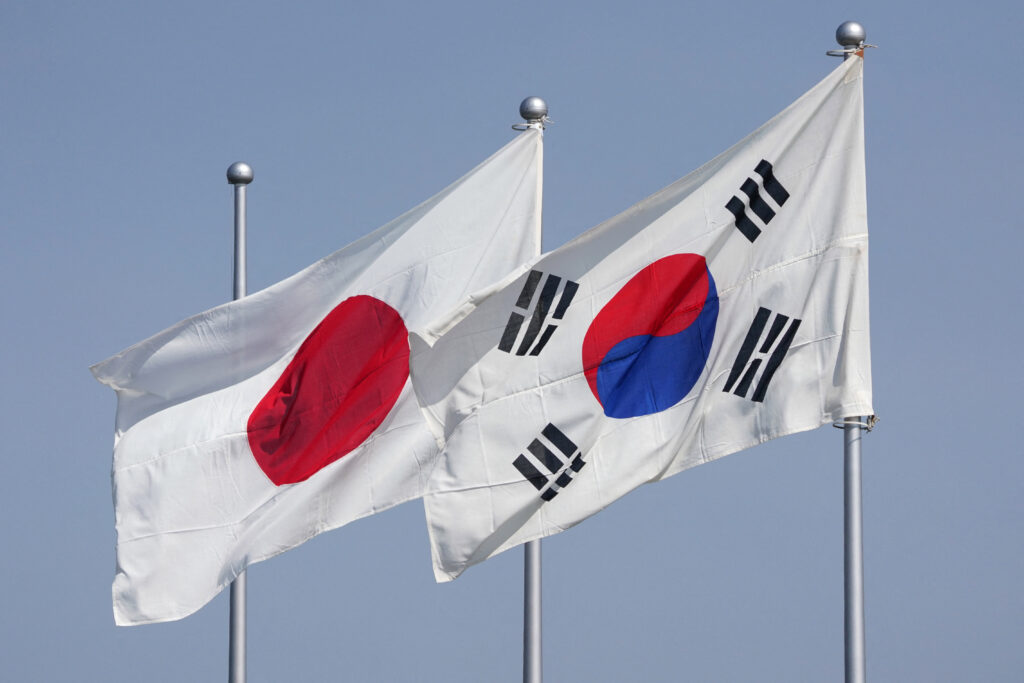
- ARAB NEWS
- 23 Jul 2025

SEOUL: Seoul will take a close look at the terms of a U.S.-Japan trade deal, South Korea’s industry minister said on Wednesday, holding out the prospect of greater cooperation in the energy and industrial sectors ahead of key trade talks in Washington.
Japan and South Korea, manufacturing powerhouses and key U.S. security allies, compete in areas such as autos and steel, so Tokyo’s trade deal will pile pressure on Seoul to reach a similar level of 15%, or better, by an August 1 deadline to avert reciprocal U.S. tariffs of 25%.
“Investors see the Japan-U.S. deal as a benchmark for the Korean deal,” said Kim Sung-rae, an analyst at Hanwha Investment & Securities, adding that the agreement “would put pressure on Korean negotiators to come up with a similar, or better, deal.”
South Korea’s benchmark KOSPI index edged up 0.2% on Wednesday, while shares in automakers and suppliers rallied after the Japan-U.S. deal. Hyundai Motor rose 7.3% and Kia jumped 7.6%.
The finance ministry and the top trade envoy of Asia’s fourth-biggest economy are set for high-level trade talks with U.S. counterparts in Washington on Friday.
NO WORSE DEAL THAN JAPAN
New President Lee Jae Myung has said Seoul wanted to avoid a comparative disadvantage with other countries in trade deals.
“South Korea will find it hard to accept a deal where there is a major difference with that of Japan,” Kim Yang-hee, a trade professor at Daegu University, said, predicting Korea would reach a similar trade deal with the United States.
It will be difficult for South Korea to have U.S. tariff rates lower than 15% on Japan and 10% on Britain, said Kim Yong-jin, a management professor at Sogang University.
Seoul needed to import more farm goods and energy, as well as boost investments, as Japan had done to reach a similar outcome, he added. The nation’s top trade envoy last week signalled Seoul may have to allow greater access to its agriculture markets to reach a framework deal.
But South Korea will exclude the opening-up of its rice and beef markets as a bargaining chip in the Washington talks, instead considering more U.S. imports of crops for fuel, such as corn for bioethanol, the Yonhap News Agency said.
“We will make an all-out effort to produce a positive sum result that will allow Korea-U.S. industrial and energy cooperation to be upgraded to the next level,” Industry Minister Kim Jung-kwan said in a statement.
Since the result could have a significant economic impact, South Korea would respond thoroughly while closely considering the sensitivity of its industry, he added.
He will meet U.S. Commerce Secretary Howard Lutnick and Energy Secretary Chris Wright, among others, he told reporters before boarding a plane to Washington for the talks.
ALASKA LNG, CHIPS
In a post on Truth Social, U.S. President Donald Trump said Japan would boost market access for American producers of cars, trucks, rice and certain agricultural products, among others.
The deal’s tariff of 15% on all Japanese imports, including cars, is down from 25%, with Trump adding that it would include $550 billion of Japanese investments in the United States.
Japan also received U.S. commitments that it would not be put at a disadvantage over industry-specific tariffs such as on chips and pharmaceuticals.
Last week, South Korea’s Chosun Ilbo newspaper said the United States had asked Seoul in talks this month to set up a large-scale investment fund to support the reconstruction of its manufacturing industry, without identifying a clear source.
South Korea has said the U.S. has conveyed a keenness to cooperate in chips, shipbuilding, and other sectors.
Trump also expressed optimism that Japan would form a joint venture with Washington to support a gas pipeline in Alaska.
Although South Korea has shown interest in the $44 billion LNG project in Alaska, its trade envoy said this month the feasibility of the project remained unclear.
Reuters